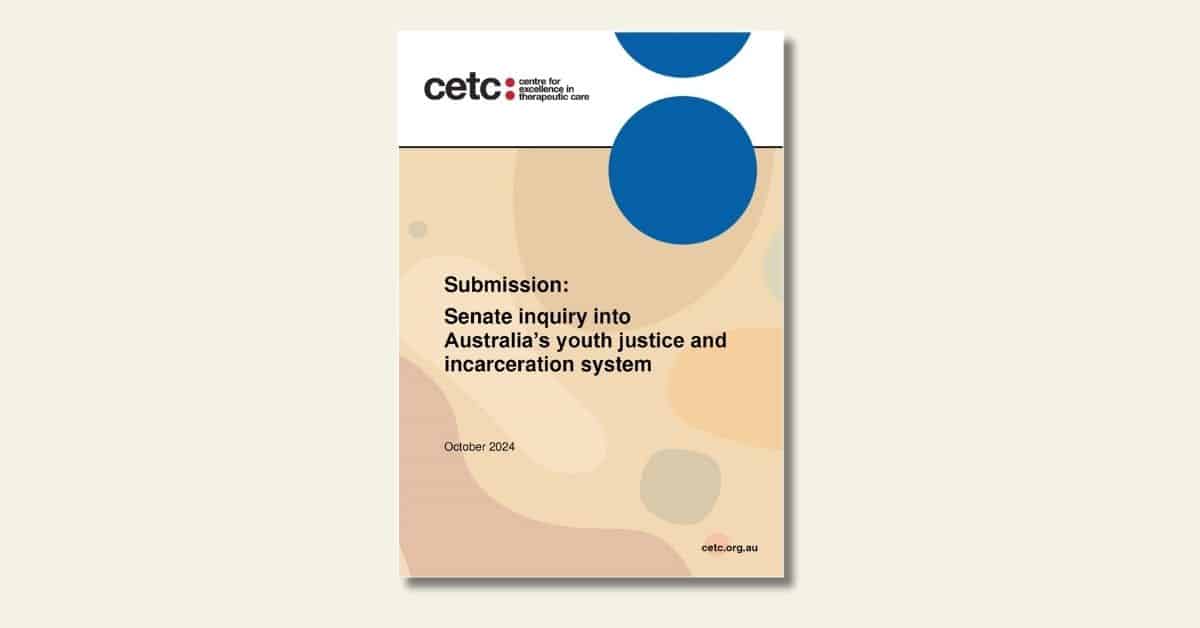Senate inquiry into Australia’s youth justice and incarceration system
Oct 2024
Written by Belinda Lorek Kelly Royds Noel Macnamara
The Centre for Excellence in Therapeutic Care (CETC) has submitted its response to the Senate Inquiry into Australia’s Youth Justice and Incarceration System.
This submission highlights the urgent need for a nationally driven therapeutic approach to youth justice through enforceable national minimum standards to address the significant challenges faced by children and young people in youth justice – many of whom are involved in out-of-home care.
Key recommendations include:
The development and implementation of national strategies, policies and standards to keep the states accountable and consistent in delivering just, safe and therapeutic services for children and young people that are focused on children’s rights.
Full integration of the Convention on the Rights of the Child, including best interest principles, in domestic law.
A unified approach to reporting, sharing of information, assessment and planning.
Sufficient jurisdictional flexibility to successfully respond to variations and differences of different cohorts of children and young people across state and local government areas.
Policies focussing on prevention, early intervention and diversion, prioritising children and their needs.
Consultations with diverse stakeholders, including therapeutic services working with vulnerable and at-risk children and young people in the space of youth justice and related systems.
Close collaboration with lived experience groups and individual young people in the development, implementation and evaluation stages of any frameworks and practice guidelines that directly affect them.
Clearly established roles for independent bodies to provide oversight over broader systemic issues, and advice about operational and practice considerations. This includes access to custodial and other youth justice settings being available to national and international oversight agencies.
Review of systemic barriers and creating real pathways to promote and enhance cross-systemic collaboration and information-sharing, with a view to services always being in the best interest of the child.
A decisive move away from criminalising and punitive approaches towards therapeutic, rehabilitative approaches on all levels of the youth justice system.
CETC additionally urges the federal government to drive and resource the implementation of the Optional Protocol for the Convention Against Torture (OPCAT), ratified in 2017, to create a foundation for internationally recognised minimum standards that safeguard young people’s rights in youth detention.
Australia has evidenced the key issues, through inquiries, commissions, investigations and reports. We have heard from countless children and young people about their wishes, fears, needs and views. Australia now needs to move from evidencing to action.
We must creatively rethink youth justice in Australia. We must change the negative narrative we use about young people and facilities and instead recognise the role of trauma, social determinants of justice, and systems abuse, that result in so many young people in Australia being in custody.

